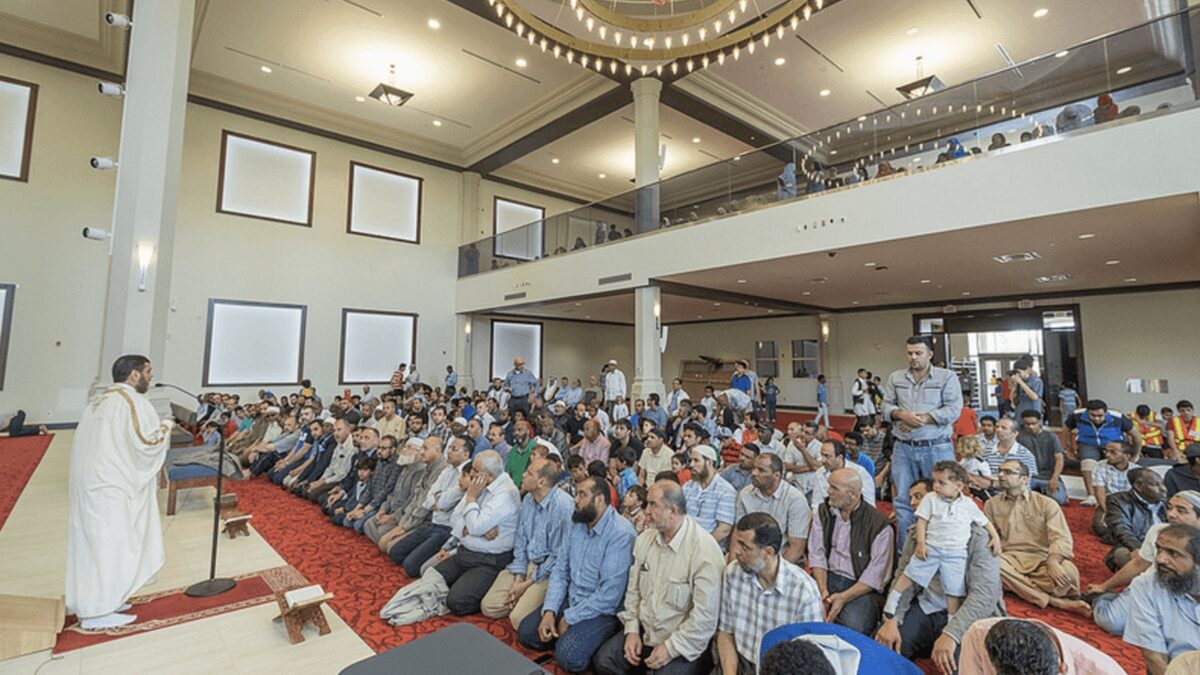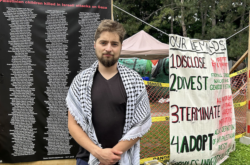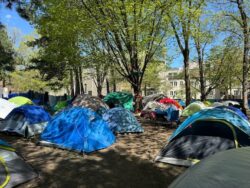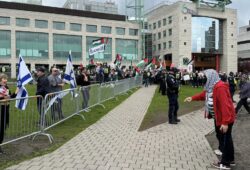Eid al-Fitr, the normally joyous end of Ramadan for Muslims around the world, was a sombre day in Ottawa this year.
The April 10 holiday was overshadowed by the suffering and loss of life in Gaza, where more than 33,000 Palestinians have been killed since Israel’s military responded to the Oct. 7 Hamas terrorist attack on Israel that killed close to 1,200 people.
“It has been a sombre start to our Ramadan,” Sahada Alolo, president of the Ottawa Muslim Women’s Organization, told Capital Current recently.
Alolo said she noticed many connected to the organization have been dealing with grief, sadness and anger, all combining to make this year’s Ramadan much harder for individuals to sift through their emotions.
You can’t help but let your eyes water a little. Ramadan is a celebration, people are happy when they break their fast, and post pictures of all the delicious food that is prepared. Some haven’t shared them this year, and we are trying to be more sensitive.
Sahada Alolo, president, Ottawa Muslim Women’s Organization
“You can’t help but let your eyes water a little. Ramadan is a celebration, people are happy when they break their fast, and post pictures of all the delicious food that is prepared,” said Alolo. “Some haven’t shared them this year, and we are trying to be more sensitive.”
Observant Muslims refrain from food and drinks from dawn until sunset each day for the holy month. This year the fast served as a stark reminder of the conditions in Gaza, where at least 13,000 children have been killed, according to health officials, and at least 27 individuals (including 23 children) had died from acute malnutrition and dehydration in northern Gaza.
Some said it was hard to have hope and keep their spirits high during Ramadan while fellow Muslims and even family members were fighting to stay alive. Ahmed al-Shifa, born and raised in Ottawa, said his grandparents and cousins were seeking refuge in Rafah in March.
I think about them all day, if I’m awake. I am hoping they are alive. I can’t take the safety and food I have for granted, and will pray to Allah that we can spend Ramadan together again.
Ahmed al-Shifa
“I think about them all day, if I’m awake. I am hoping they are alive. I can’t take the safety and food I have for granted, and will pray to Allah that we can spend Ramadan together again,” al-Shifa said.
During Ramadan, in addition to the five daily prayers known as Sarah that are part of the core faith of Islam, Muslims recite a special prayer called the Taraweeh prayer (night prayer).
Al-Shifa explained that Salah is a ritual taught by the Prophet Muhammad. It requires Muslims to face the direction of the Holy Kaaba in Mecca, Saudi Arabia. The prayer involves certain actions that form a cycle, during which the person praying recites verses from the Qur’an and chants the Divine Names of Allah.
“It helps you give gratitude for the things that Allah gives you, and you can pray for others,” Al-Shifa said during an interview in March. “I would hope that we are all using this month to pray for those in Gaza. Our people are resilient, and we will make it.”




